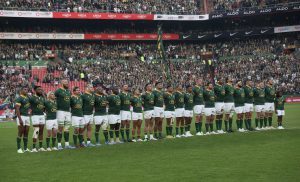Petrol Shortage: Consumers to pay more for petrol as forex drops to N1,621/$
•NNPC, independents sell at N895, N1, 000 per litre
•Massive importation to continue
By Udeme Akpan, Energy Editor
There were indications, yesterday, that consumers would have to pay more for
imported petrol as the exchange rate dropped by 1.6 per cent to N1, 621/$, from N1,595/$, recorded on Thursday, this week.
This is even as the private depot owners in Lagos and its environs have increased the depot price of petrol to more than N960 per litre, from N710 per litre, indicating an increase of 35.2 per cent.
This means that the government would need more funds to import the product while passing the cost in the form of high prices to consumers, especially as the Minister of State for Petroleum Resources (Oil), Heineken Lokpobiri, has already noted that the sector remains deregulated.
The current transactional analysis obtained by Vanguard, yesterday, put the landing cost, including product cost, finance cost, freight, port charges, insurance, storage and the Nigerian Midstream and Downstream Petroleum Regulatory Authority, NMDPRA at more than N1,200 per litre.
NNPC, independents sell at N895, N1, 000 per litre
However, while the NNPC Ltd and major oil marketers sold products at N895 per litre, their independent counterparts sold them at between N900 and N1,000 per litre, depending on location.
Checks by Vanguard indicated that supply remains inadequate and unstable as many outlets without the product were shut while long queues were still seen at many filling stations with the product.
Many illegal operators also cashed in on the confusion to hawk petrol in cans at the cost of between N1,200 and N1,500 per litre in different parts of Lagos, especially Maryland, Ikorodu road and Ikoyi.
Transporters that managed to buy the product passed the high cost of petrol to commuters.
Specifically, transport fares have risen by more than 100 per cent to N3,000 to commute from Victoria Island to Mile 2, a distance that used to cost about N1,500 before the latest fuel price hike.
Massive importation to continue
Meanwhile, checks by Vanguard indicated that massive importation of petrol would continue in the short term, pending the resolution of all outstanding issues, especially pricing, lifting and marketing of the product.
The National President, Oil and Gas Service Providers Association of Nigeria, OGSPAN, Mazi Colman Obasi, said: “We are told the $20 billion Dangote Refinery has started refining. But we should not expect the production of commercial products until issues like crude oil supply; pricing and marketing arrangements are fully made.
“With 650,000 barrels per day, bpd capacity, the refinery has sufficient capacity to meet domestic demand while exporting part of its daily output to the global market.”
On his part, another expert, who pleaded to be anonymous, said: “The government has been making promises on the domestic refineries. Efforts should be made toward putting them into perfect conditions in order to increase supply while reducing importation. As a leading African producer of crude oil, Nigeria cannot afford to remain the major importer of petroleum products for so long.”
Fuel prices based on free market — NNPC
However, the Executive Vice-President, Downstream, NNPC, Adedapo Segun, said: “If you look in section 205 of the PIA, that’s the Act that gave birth to NNPC Limited, it tells you that petroleum prices or fuel prices were based on unrestricted free market conditions. And so, when you have a situation where fuel prices remain the same, that’s what is unusual, you won’t see that in other climes, where you have prices fixed for a long period.
“It’s actually supposed to move in consonance with changes and market conditions. During the summer months, prices are high because it’s a driving season, in the winter months, prices come down and things like that. So, that’s what the PIA provides for, prices should move with the seasons.”
He said: “Everyone will compete for market share, and the quality of service will improve. That feeling of entitlement by marketers or companies in the business will go away because they will compete against each other to serve consumers better.”
Segun also said: “We’re working with all of the marketers. You know we have almost a thousand stations around the country, but that’s not enough. We’re working with all of the marketers, engaging with them to ensure that fuel stations open early and close late, and make sure that there’s enough fuel in all of the stations. So, we are ensuring that deliveries are made to stations. We are doing our best to make sure that there are no diversions.”
Stakeholders, NBA call for reversal
Meanwhile, many organisations, including the Nigerian Bar Association, NBA, have called for the immediate reversal of the new price regime.
In a statement obtained by Vanguard, NBA President, Mazi Afam Osigwe, said: “The cascading effects of such a steep increase in fuel prices on the cost of living, transportation, and essential goods and services are deeply troubling. Many Nigerians are already grappling with inflation, unemployment, and other forms of hardship, and this additional financial strain is simply unsustainable. If allowed to persist, this price hike will only deepen the poverty and hardship experienced by the citizens.” and market conditions. During the summer months, prices are high because it’s a driving season, in the winter months, prices come down and things like that. So, that’s what the PIA provides for, prices should move with the seasons.”
He said: “Everyone will compete for market share, and the quality of service will improve. That feeling of entitlement by marketers or companies in the business will go away because they will compete against each other to serve consumers better.”
Segun also said: “We’re working with all of the marketers. You know we have almost a thousand stations around the country, but that’s not enough. We’re working with all of the marketers, engaging with them to ensure that fuel stations open early and close late, and make sure that there’s enough fuel in all of the stations. So, we are ensuring that deliveries are made to stations. We are doing our best to make sure that there are no diversions.”
Stakeholders call for reversal
Meanwhile, many organisations, including the Nigerian Bar Association, NBA, have called for the immediate reversal of the new price regime.
In a statement obtained by Vanguard, NBA President, Mazi Afam Osigwe, said: “The cascading effects of such a steep increase in fuel prices on the cost of living, transportation, and essential goods and services are deeply troubling. Many Nigerians are already grappling with inflation, unemployment, and other forms of hardship, and this additional financial strain is simply unsustainable. If allowed to persist, this price hike will only deepen the poverty and hardship experienced by the citizens.”
The post Petrol Shortage: Consumers to pay more for petrol as forex drops to N1,621/$ appeared first on Vanguard News.






